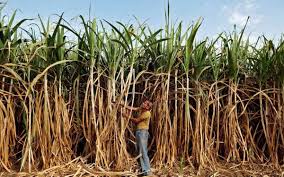Petrochemical
Govt. encouraging sugar mills to enhance ethanol capacity
Soft loans of about Rs. 18,600 crore are being extended through banks to 362 projects of 600 crore litre capacity for enhancement and augmentation of ethanol production capacity for which an interest subvention of about Rs. 4,045 crore for five years is being borne by the government.
-
By Pravin Prashant | August 24, 2020
To achieve blending targets of 10% for mixing ethanol with petrol by 2022 and 20% target by 2030, the government is encouraging sugar mills and molasses based standalone distilleries to enhance their ethanol distillation capacity.
Soft loans of about Rs. 18,600 crore are being extended through banks to 362 projects of 600 crore litre capacity for enhancement and augmentation of ethanol production capacity for which an interest subvention of about Rs. 4,045 crore for five years is being borne by the government.
The banks have sanctioned loans to 64 project proponents and completion of these projects would increase ethanol distillation capacity by 165 crore litres in another two years. Thus the ethanol distillation capacity in the country would increase from 426 crore litres per annum to about 590 crore litres per annum by 2022.
To encourage sugar mills to divert excess sugarcane to produce ethanol for blending with petrol, the government has allowed production of ethanol from B-heavy molasses, sugarcane juice, sugar syrup and sugar; and has also fixed the remunerative ex-mill price of ethanol derived from these feed-stocks. The state-wise targets for ethanol manufacture have also been fixed.
Sugar mills/distilleries have been advised to utilize at least 85% of their existing installed capacity to produce ethanol. Sugar mills having distillation capacity have been advised to divert B-heavy molasses and sugar syrup for producing ethanol to utilize their capacity to maximum extent; and those sugar mills which do not have distillation capacity should produce B-heavy molasses and should tie up with distilleries which can produce ethanol from B-heavy molasses. States have also been requested to ensure smooth movement of molasses & ethanol.
Even producers of ethanol (sugar mills), buyers of ethanol (OMCs) and the lenders (banks) are willing to enter into a tripartite agreement (TPA) about producing, buying and paying for the ethanol through an escrow account etc., the banks can consider giving loans to sugar mills even with weak balance sheets. This would facilitate mills to avail loans from banks to set up new distilleries or to expand their existing distilleries, thereby enhancing the overall distillation capacity in the country and thus would help in achieving the blending target under Ethanol Blended with Petrol programme.
